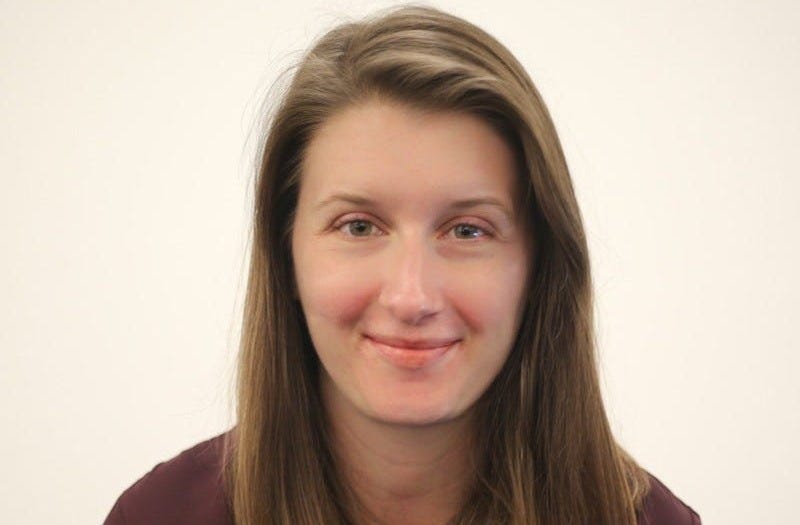Thought Leader Interview: Keshia Theobald-van Gent
In our latest Thought Leader Interview, we interview Silicon Valley Business Journal’s 2025 Woman of Influence, Keshia Theobald-van Gent.
Named a 2025 Woman of Influence by the Silicon Valley Business Journal, Keshia Theobald-van Gent is a standout figure in venture capital, known for her strategic leadership, global perspective, and community-driven approach to investing. As VP of Investment at BDev Ventures, she has overseen more than 60 investments in high-growth startups across sectors, with 25% of their portfolio seeing significant markups.
BDev Ventures and Its Mission
What is BDev’s investment thesis and criteria?
We invest in B2B software companies from late seed through Series B, but what makes us different is our go-to-market platform. We have a suite of lead generation tools including a proprietary database, advanced email automation, and a warm outreach engine that helps our portfolio companies grow their pipeline faster and smarter.
Because of that, we only invest in startups that are sales-ready. That means they know their ICP, have a repeatable sales process, some traction, typically $400K to $500K+ in ARR, and clarity around their messaging. We’re not a fit for heavily regulated sectors like healthtech or crypto, where our tools just wouldn’t apply.
You mentioned that you run sales pilots with companies during diligence. That’s unusual — can you explain how it works?
Yes, we’ve found it incredibly valuable. We basically run a mini sales pilot with the startup to see: Can our platform actually move the needle for them? It helps us de-risk the investment, and it gives founders a preview of what it’s like to work with us. We believe in systems that scale, and this is how we vet that fit early.
What are some challenges you’re seeing in the market right now?
There was a lot of optimism heading into 2025, expectations that this administration would be pro-business and we’d see more liquidity. But what we’ve actually seen is a lot of uncertainty. That’s put pressure on LPs, and as a result, a lot of venture firms are pulling back, especially outside of AI. So fundraising has gotten harder, and founders are feeling that. The bar is higher.
The Importance of the Founder
What do you look for in founders when you're making investment decisions?
It’s never just one thing. Of course, we look at market size. You’re governed by the Power Law in venture, so it has to be big or growing fast. But we also look at founder-market fit, whether they’re solving a real problem, and whether they’re talking to customers.
Metrics like revenue and retention matter, but at the early stage they can be deceptive, especially when you only have a few customers. So we look holistically. We do our homework.
What advice do you find yourself giving to founders most often?
Treat fundraising like a sales process, not just a relationship game. One of the biggest mistakes I see is founders reaching out to every investor they meet, hoping for a spark. Founders should approach this as a process with clear objectives.
What I tell them is: define your Investor ICP. Do the research. Use public info to figure out who invests at your stage, in your vertical, at your check size, and eliminate everyone else. You’ll waste less time and have higher conversion.
What common founder challenges do you see once companies get funded and start scaling?
The biggest one is the transition from founder-led everything to structured growth. Going from being the team captain, involved in every decision, to being more of a coach or GM. That’s especially hard for technical founders who didn’t necessarily want to be CEOs in the first place.
See also: Startup Breakpoints and Evolutions.
Keshia’s Journey
What's your own journey into venture been like?
I actually started out in law and NGOs. I went to grad school in the Netherlands, and at one point I co-founded a literacy project for low-income elementary schools in Silicon Valley. Our goal was to bridge schools and the local business ecosystem, we built some amazing partnerships. Eventually, we pivoted it into a nonprofit.
But that experience, working on systems change, working across sectors, was formative. Education is the best gift you can give to young people, and it’s what enabled my career. In VC, I draw on that background all the time. I didn’t grow up in Palo Alto, I didn’t follow the standard tech path, and that gives me a wider lens. It helps me connect with founders from different walks of life.
Connect with Keshia via LinkedIn!





Keshia absolutely rocks. Such an amazing human -- and a great fund Partner.